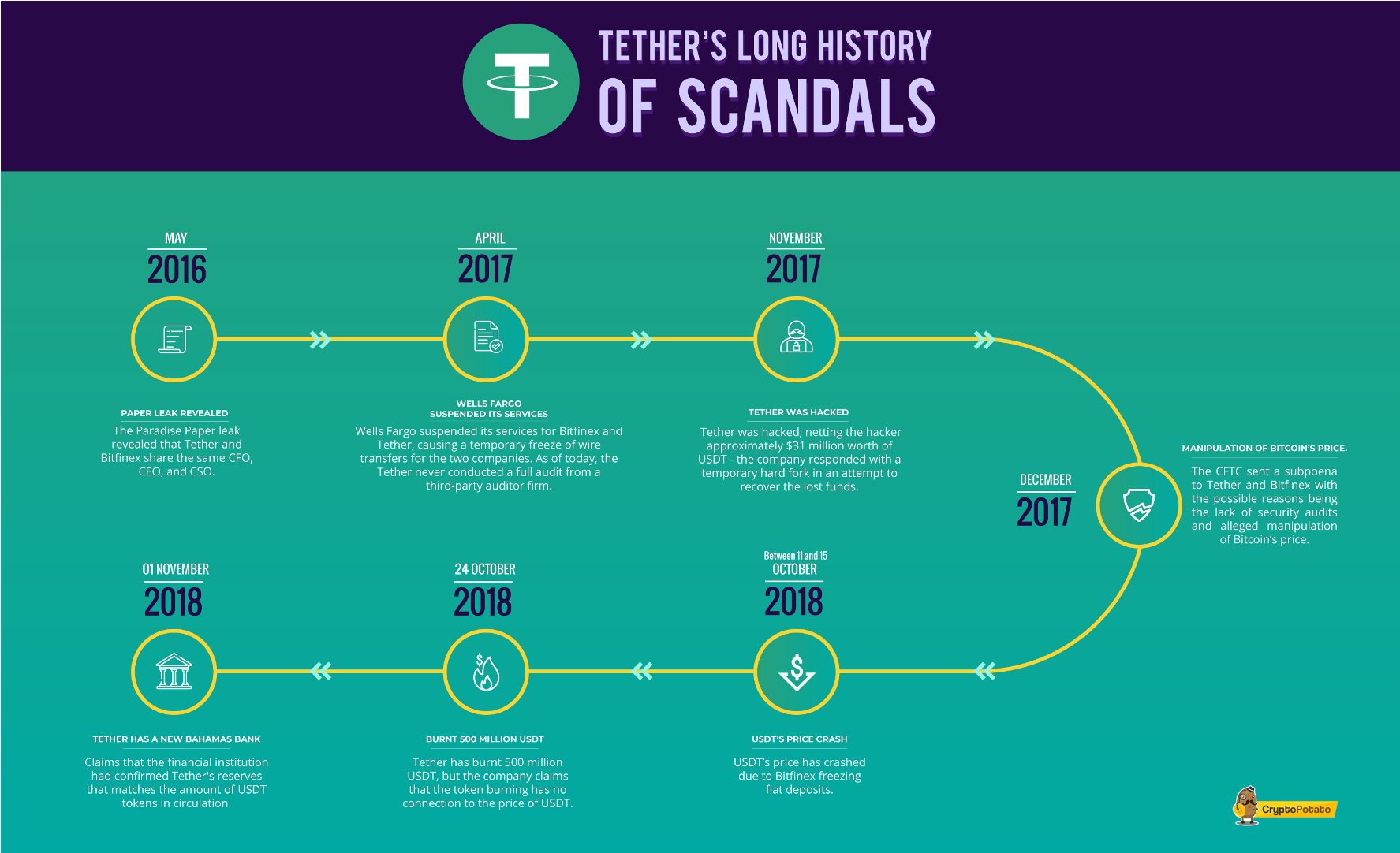Bitfinex and Tether have been involved in the past in a large number of scandals. Therefore, it shouldn’t come as a surprise that the companies are in trouble again.
The New York Attorney General’s Office (NYAG) has provided new evidence in Bitfinex and Tether’s case yesterday, proving that the two companies had served New York customers longer than they claimed.
Covering up an $850 million loss
The NYAG started an investigation against iFinex – the parent company of Bitfinex and Tether – on fraud in April, stating that Bitfinex had covered up an $850 million loss by using at least $700 million of $900 million USDT tokens from Tether’s reserves the cryptocurrency exchange had access to.
Soon after the investigation has started, Tether published a blog post stating that the documents were written in “bad faith” and are “riddled with false assertions.” Despite its negative comments, Tether stated in the blog post that both the stable coin issuer and Bitfinex are cooperating with the NYAG.
Later on, the two companies have filed a motion to dismiss the NYAG’s case against the Bitfinex and Tether, claiming that the firms ceased its services for New York customers in 2015.
In May – due to the motion of Bitfinex and Tether –, Judge Joel Cohen has granted a partial stay on the NYAG’s request of documents from the two companies until their hearing takes place on July 29.
The NYAG presents new evidence
Responding to the motion, the NYAG has filed a Memorandum of Law in Opposition, 28 pieces of exhibits, and an affirmation to the New York Supreme Court.
“The OAG has uncovered substantial ties between Respondents and New York concerning Respondents’ corporate operations; trading on the Bitfinex platform; the issuance, redemption and trading of tethers; use of financial institutions to move money and process customer deposits and withdrawals; and representations to the market that might have been misleading,” the document stated.
According to the NYAG, New York customers could access Bitfinex’s trading platform until January 2017 while New Yorkers could purchase and redeem USDT until November 2017.
Furthermore, the “most senior executives” of the two companies – who the NYAG also deems as the “largest stakeholders” – have allegedly resided and worked in New York between 2014 and 2018.
Between 2017 and 2018, the firms opened accounts at two New York-based banks – the Metropolitan Commercial Bank and the Signature Bank – as well as used the accounts of Noble Bank, a New York-based financial institution, according to the court document.
The NYAG’s evidence also revealed that in 2019, the organizations loaned USDT to a New York-based trading firm and opened an account at a digital currency firm in New York as well as Tether hired New York-based auditors in 2017 and 2018 to prove the 1:1 peg of USDT tokens.
Attacking Bitfinex’s $1 billion IEO
In the document, the NYAG also aimed Bitfinex’s recent Initial Exchange Offering (IEO), in which the cryptocurrency exchange sold $1 billion worth of its LEO tokens to private investors.
“Respondents’ recent ‘initial exchange offering,’ for instance, has every indicia of a securities issuance subject to the Martin Act, and there is reason to believe that the issuance is related to the matters under investigation,” the NYAG stated in the document.
As mentioned before, the flaws in the token’s code allow Bitfinex to commit fraudulent activities, including printing or minting an unlimited number of LEO tokens as well as deleting the coins of the users.

 cryptopotato.com
cryptopotato.com